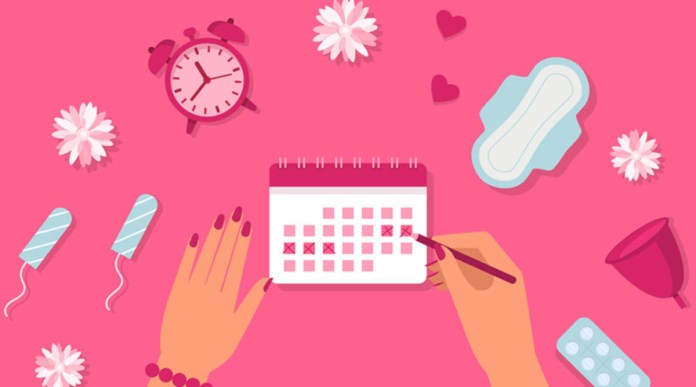Whether you’re a teenager or a woman in your 40’s maintaining, your menstrual health and hygiene are super important. While we often hear a lot of dialogue about periods and cramps etc., there’s not enough discussion around why menstrual health is important. So, we got in touch with Dr Urvashi Sehgal, an Obstetrician and Gynaecologist based in Delhi to clear all our queries. She has been practising for more than 20 years, and she answered some of the frequently asked questions about menstrual health. Ladies, read on and take notes!

So Doctor, firstly why would you say it’s really important to maintain proper menstrual hygiene?
Well, it’s important to maintain proper menstrual hygiene because this impacts the physical and mental health of the women or the girls. If proper menstrual hygiene is not maintained they can develop infections which have serious long term implications on their overall health. They can also have odour issues, smell bad, dirty discharges which in turn will make them feel unattractive and have low self-esteem.
What are the best ways in which women can maintain good menstrual hygiene?

It all depends on the situation, circumstances, the age and their profession. There is a lack of awareness, lack of accessibility and availability of things that can health them be hygienic about their menstruation and also lack of affordability. So, the main thing is to take care of whatever responsibility comes with menstruation.
In terms of hygiene, it should not interfere with their day-to-day living. Whatever product they use should be environmentally friendly, shouldn’t give them any allergies and should be easy for them to dispose of as well. Depending on their circumstances and affordability of the product, whatever they use should be clean so they don’t any infections etc.
In our country, talks around this subject are hushed down. What tips would you give young girls who have just started with their menstruation?

First of all, they need to know that it’s a very very normal thing. It’s a sign of a healthy transformation from being a child to becoming an adult. One shouldn’t feel embarrassed about and it’s nothing dirty. They also need to know how it happens, if they haven’t already been taught the underlying physiology behind it and what is the purpose of it and the significance in their reproductive system and having children later. And they need to know how to look after themselves and keep themselves clean during their menstrual cycle.
What steps should be taken if there are unmanageable rash and irritation during periods?

Well, if there is a rash the first thing to do is apply any non-irritating, fragrance-free, natural oil maybe coconut oil or a calamine lotion or even a diaper rash cream. But if it still doesn’t get sorted out then you need to show a doctor. Preferably a Gynaecologist.
Also, you should know why it happened and prevent it from happening again. It could be sensitivity to whatever product you are using or due to not changing a pad or tampon for long restricting ventilation to that area. This could lead to the growth of bacteria or fungus which could give you a rash. Sometimes it could also be because of wearing tight clothes or synthetic clothes, like synthetic underwear etc. So to prevent it from happening again, you need to know why it happened in the first place.
What’s your take on vaginal wash products which have recently swamped the market?

So, if they are fragrance-free and made up of natural ingredients, they are definitely better than soaps. Soap is not good at all because it causes a lot of dryness and changes the pH. But, overuse of anything is not good. So while some of the vaginal washes may not be as natural as they claim to be but there are some which are good and help to maintain the pH and hygiene. You just need to make sure you pick the right one.
Rashes, itching and discomfort from sanitary napkins is a common problem. What alternatives would you say are safe to use?
Again, as I said earlier, it depends on the age, the lifestyle, the affordability etc. For one person it could the reusable cotton tailored pads, as long as they are clean, hygienic and they’re changing it on time. For another person, it could be a tampon or a menstrual cup. But again there are precautions to be taken. So there is no one single ideal thing, but whatever you use should suit you and shouldn’t cause infections and allergies and should be environmentally friendly and affordable.
What’s your take on tampons? Are they safe to use, since they aren’t as popular in our country?

They are safe to use under certain conditions. First of all, they should be changed frequently and should be inserted hygienically. If they are not used properly they can cause major infections, so you must be careful.
There are a lot of myths around whether women should work out during those days or not. Can you shed some light on it?

Some form of exercise is actually good for girls during their period because it distracts them or reduces the feeling of discomfort. It also increases the level of Endorphin which gives a feeling of well-being. Otherwise, they tend to feel miserable during their period.
However, it also depends on how a period affects a person. So if they are very painful, heavy and debilitating, then it could be very difficult for them to exercise. But they can still do some breathing exercises or some stretching or perhaps just a walk which would help them.
On the other hand for some people, their menstrual cycles are just a breeze and they can continue with their life as it is. This is also perfectly fine, it doesn’t harm them. So overall, it depends from person to person. But there’s no such set rule that you should not exercise during your period.
Any dietary instructions women should follow around this time of the month?

You should have enough water and other fluids. Also, foods that are rich in iron, vitamins and antioxidants, especially B complex should also be consumed. So, nuts, fruits and dark leafy vegetables are good. Also, try to avoid salt and high carbs. Sometimes you may also get cravings for chocolate and other foods but you should not completely give in to these cravings because it’ll only make you feel really sick and bloated. Not that you can’t give in at all, but just try to keep the intake low.
What all precautions do you feel women around menopause need to take?

Menopausal health is again a combination of both physical and mental health. So physically one must take care of their gynaecological health i.e., breasts, ovaries and uterus. So they should undergo annual check-ups like breast ultrasound, a pap smear, pelvic ultrasound etc. And any kind of bleeding, post menopause should be reported to the gynaecologist.
They must also take care of their bones because bones get weak during menopause. Their diet should be reached in calcium, maybe even take calcium supplements. Exercise is a must for their bones, joints and muscles. After menopause, the estrogen deficiency can also have a negative impact on one’s memory so it’s mandatory to stay mentally active and have a proper diet. Doing yoga, meditation and distressing oneself is also important for menopausal women.
So, girls & ladies, we hope our insightful conversation with Dr Urvashi has answered a ton of your queries. Let us know your thoughts in the comments below.




